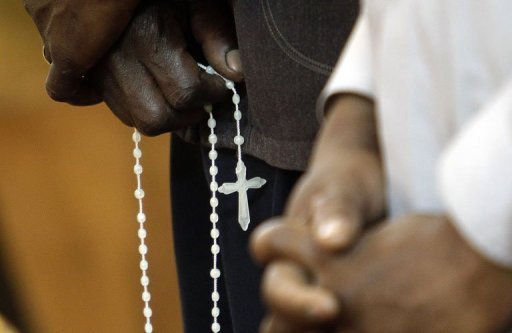CAIRO: Sixty seven percent of Muslims feel that Ramadan is becoming too commercial, revealed a recent survey assessing Muslims perception of the holy month.
Online research firm Maktoob Research surveyed 6,128 people from across the Middle East including Egypt, the United Arab Emirates, Saudi Arabia and Morocco. As restaurants and hotels region-wide tout their special Ramadan iftar and suhour promotions, a big majority also feel that Ramadan is becoming a bit too commercial, the report said.
The survey also showed that 96 percent of Arab Muslims are observing the Ramadan fast, with 89 percent viewing Ramadan as a yearly lesson in self restraint and discipline.
Seventy-one percent believe the holy month gives them a sense of solidarity and sense of community with fellow Muslims.
The study throws light on what Ramadan means today to followers of Islam, and how they perceive the customs and practices associated with the holy month, Director of Maktoob Research, Tamara Deprez, said.
The survey’s findings show that despite the pace of modern life and the changes in people’s lifestyle, the Arab world retains its spiritual essence and remains largely tradition-bound where matters of faith are concerned – more so during the holy month of Ramadan, she added.
However, even though most people agree that Ramadan is becoming too commercial, they don’t feel that it is something to worry about.
Ramadan is becoming commercial especially in Egypt, but it s not necessarily a bad thing, it s like how Christmas is commercialized in the west. People are not pivoting away from [its religious aspect] so I don’t think there is any problem if a hotel or two want to do Ramadan promotions, a university student said.
Some believe that this phenomenon may be harmless now but it may still pose a problem in the future.
Everywhere you look; people are trying to sell the idea of Ramadan in restaurants, cafés, and super markets. It s everywhere. I think if things carry on this way, we will lose sight of what s really important, another university student explained.
The survey also revealed that 62 percent felt that non-Muslims living in Arab countries should not eat in public during Ramadan while 52 percent wanted all restaurants to close down during fasting hours out of respect for Ramadan.
The survey also aimed at exploring the habits associated with the holy month.
The majority of those surveyed tend to have iftar with close family members, but a significant portion also stated that they preferred to break their fast with friends or by attending a religious ceremony.
Seventy-four percent said they spend their free time reading the Quran with one in three Muslims in the UAE finishing it over the course of the month.
Contrary to popular belief, most Muslims do not spend their time glued to the television set with 43 percent saying they spend less time than usual watching television during Ramadan.
Sixty-two percent of the respondents said they honored the tradition of the moon-sighting but others depended on scholars declaration and astronomical calculation.
Technology now plays a significant part in Muslims lives around the world with 79 percent of those surveyed preferred their mobile phones be tailored to include Islamic prayers, Hadith (prophet s sayings), prayer times and Quran verses that will be handy during Ramadan.
Many tend to feel more charitable during Ramadan with 83 percent saying they are likely to give money to family and friends as a gesture for Ramadan and Eid.
Ninety-nine percent of Muslims surveyed from Egypt, Oman, Saudi Arabia and Qatar said they are observing the holy month by fasting, while only 85 percent of Muslims surveyed in the UAE said they will be fasting.


